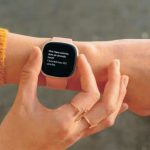I have been diagnosed with Diabetes for some time now. I like to travel a lot. Please advise me on how to manage insulin and medication while travelling during the summer time.
Travelling is an integral part of human life. It could be due to work, family, vacation or emergency. Most people who are diagnosed with chronic conditions such as Diabetes, high blood pressure and heart disease are anxious about their medicine compliance during travel days. Doctors often hear people saying, “I missed my medicines as I was travelling.” This
non-compliance may adversely affect the health and sometimes may prove life threatening. For example, people with Type1 Diabetes and who miss insulin dose for a few days can develop diabetic ketoacidosis, which may prove critical. When you have Diabetes, you need to be on your toes at all times by constantly maintaining a balance between your diet, medication and exercise. Habit and routine are your best allies. When your routine gets disrupted, it becomes all the more challenging to still-walk the tightrope.
Never make any changes to your medication or treatment routine without consulting your physician. If your trip is planned in advance or you are a frequent traveller, the best thing to do is to visit your physician before going on a trip. Keep your
co-passengers and hosts informed of your Diabetes, so they may try and accommodate your requirements. If possible, wear a CGM during travel if there is past history of hypoglycaemia on insulin (low blood glucose levels). Always carry a glucometer with you and check your blood glucose more frequently while on the move. Carry double the amount of medicine you think you’re going to need, to be prepared for any changes in your itinerary.
Visit your doctor for a current prescription which mentions the name of insulin, the syringes or pen you use, other medications or devices you use, your allergies, your food sensitivities and other medications. Ensure to keep a copy of your current prescription with you at all times. Carry a letter from your doctor stating that you are allowed to carry medicines, syringes, pens and needles and glucometer.
 n
n
Remember to:
. Ensure beforehand to get a refrigerator to store your insulin wherever you’re going to stay or carry insulated pouch to carry your insulin around.
. Carry your insulin with you at all times.
. Never store insulin in checked luggage as it may get exposed to extreme temperatures.
. It is important to inspect insulin every time before injecting. If you notice anything unusual about the appearance of your insulin either use a new insulin vial or contact your healthcare team.
. Traveling across different time zones may affect the timing and amount of your insulin dosage. Your doctor may recommend adjustments that you may need to make in your insulin regimen.
. Insulin must be stored properly as it will spoil if left in temperatures that are too hot or too cold.
. Insulin keeps its strength at room temperature for four weeks. If travelling in hot temperatures store your insulin in an insulated pouch.
. For longer trips, you can purchase small containers to dispose of needles and syringes.
. If you use insulin pens, carry a spare one with you. Keep some syringes to be used in an emergency so you can withdraw insulin from an insulin cartridge.
– Dr Sudeep Jain
Consulting Diabetologist














